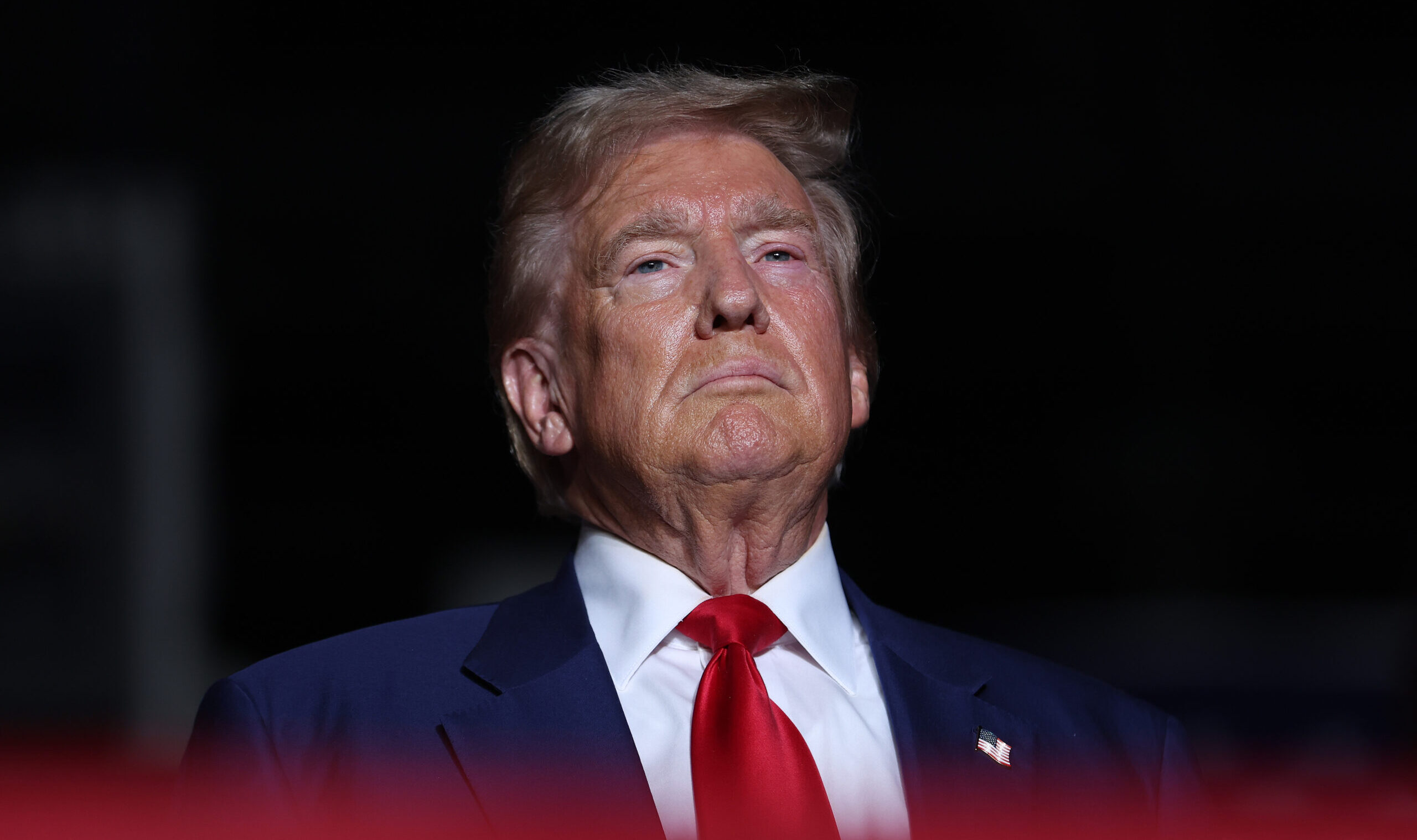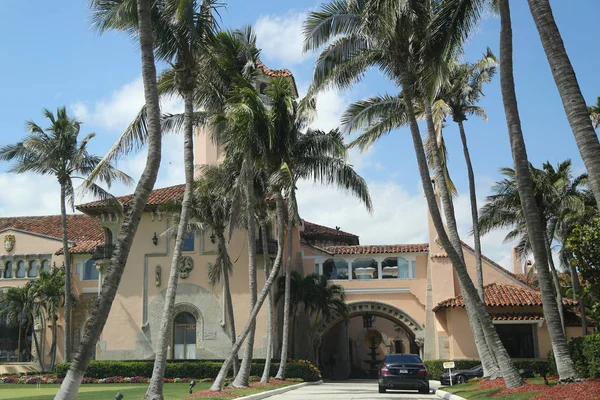Trump Must Be Bold With His National Security Appointments
Here are some candidates who will shake up the Pentagon.

Former President Donald Trump is coming back to the White House in January. He’ll need to choose his top national security officials wisely. He promised in 2016 that he would not surround himself “with those who have perfect resumes but very little to brag about except responsibility for a long history of failed policies and continued losses at war.” Even so, Trump hamstrung his first administration with conventional choices that pushed his foreign policy in a conventional direction. Worse, some on his foreign policy team even worked to undermine him. Yet many names raised for cabinet-level national security roles these days are not people who will drive change. So who should Trump add to his list for critical jobs like secretary of defense and secretary of state?
Senator Rick Scott
It’s strange we don’t see Scott (R-FL) floated for secretary of defense. He has the executive experience—he was the governor of Florida for eight years. He’s on both the Armed Services and Homeland Security committees, and his state is loaded with bases, servicemembers, and veterans. He’s used his platform to lay out a more Trumpian GOP foreign policy. His 2022 “Plan to Rescue America” opposed nation-building, emphasized burden-sharing in alliances (“We will not send our kids to do what their kids will not do”), and touted economic competition with China over war. (That last bit rhymes with J.D. Vance’s views, too.) The plan even spoke of stopping “woke ideological indoctrination” of the military—a contributing element to the recruiting crisis, and a problem sure to be a theme in a new Trump term. Scott also served in the Navy as an NCO, not a senior officer, and thus might be better able to engage with the common servicemember and find the gaps that emerge between Pentagon ideas and on-the-ground realities.
Scott might jump at the job. He’s aiming to be Senate majority leader, but success in that fight is far from certain. If he’s not the master of the Senate, Trump should consider him to head the Pentagon.
Former Senator Jim Webb
The Virginian has a stellar resume for a job like secretary of defense, having served as a senator, secretary of the navy, and assistant secretary of defense, in addition to collecting a chestful of medals as a Marine officer in Vietnam. Trump’s team considered him for SecDef in 2019 before elevating Patrick Shanahan and then Mark Esper; the latter became a significant thorn in Trump’s side.
It’s unsurprising Webb was considered: he is cut from the same Jacksonian cloth as Trump. And Webb was right on the Iraq War, having made a strong, reality-based case against the invasion. His argument is worth rereading today. He correctly diagnosed the problems of the pre-war debate: “The issue before us is not simply whether the United States should end the regime of Saddam Hussein, but whether we as a nation are prepared to physically occupy territory in the Middle East for the next 30 to 50 years. Those who are pushing for a unilateral war in Iraq know full well that there is no exit strategy if we invade and stay.”
He got the geopolitics of the war right, too: “Nations such as China can only view the prospect of an American military consumed for the next generation by the turmoil of the Middle East as a glorious windfall.” True, indeed—and it took political courage to say true things in the war fever of late 2002.
Webb has since been focused on China, and his extensive experience in Southeast Asia (including speaking Vietnamese) would be an asset to U.S. relationships in that region. Webb even negotiated—as a senator!—the release of an American prisoner in Myanmar. Hostage releases were a major priority for the first Trump administration.
Another plus for Webb: He ought to be an easy confirmation. He’d be a former Democratic senator with a nomination from a Republican president. His oppo file has been aired to death—he ran in 2006’s tightest Senate race and then challenged Hillary Clinton for the 2016 Democratic nomination. He has the knowledge for the job— remember him stumping the sitting Senator George Allen with a question about the Senkaku dispute? He’s older than most contenders, but only a few months older than Trump himself and years younger than the current commander-in-chief. Plus, putting an Asia-focused official atop DoD or State would be a step toward realizing the long-promised pivot to Asia.
Representative Warren Davidson
Davidson (R-OH) has made a name for himself as a thought leader in foreign policy circles, taking on subjects from NATO to Yemen. His sharp criticism of NATO’s inequitable burden sharing would be a powerful signal to Europe. This could enable Trump to play “good cop” to Davidson’s “bad cop.” His emphasis on clarity concerning our goals in Ukraine would be a vital addition to conversations about bringing that conflict to a close. Another point in his favor: When Trump spoke of withdrawing from Syria, the Beltway melted down, but Davidson called an exit “appropriate and long overdue.” His advice looks wise as American troops hunker down around the Middle East.
Davidson has served as both an officer and an enlisted member of the Army, and Trump already appointed him to West Point’s Board of Visitors. The more eye-catching move would be to place Davidson in the intelligence world, since he’s been a strong critic of mass surveillance.
Senator Mike Lee
Lee (R-UT) would be a bold pick, but one that would show a clear change in direction from both current policy and the personnel-induced challenges of the first Trump term. Lee has served on both the Armed Services and Foreign Relations committees. (His exit from Armed Services had much to do with friction between him and the late Senator John McCain.) He shares Trump’s critique of Washington foreign policy circles, saying in 2023, “When the same people making decisions about foreign policy are wrong over and over and over, maybe the room of people making these decisions should be bigger.” Lee has encouraged debate on aid to Ukraine. He’s also highlighted the need for NATO members to take up a greater role in defending themselves.
Like Davidson, Lee places a strong emphasis on the Constitution, including congressional war powers. Putting either in a top role would weaken partisan arguments that a Trump administration will challenge rule of law in the national security realm. Many see Lee as a strong contender for attorney general. That would give him a window on national security decisions; he could also, to win Democratic votes in the Senate, promise to revisit or revoke expansive DOJ interpretations of presidential war powers.
CEOs, not GO/FOs
Secretary of defense is a huge job. The Department of Defense is one of the world’s largest employers. It has an enormous and complicated budget. Its people do dangerous jobs in some of the world’s most difficult environments. It develops and buys expensive systems that take years to come online—and it does all that without the discipline of profit and loss. The SecDef has 536 bosses—the President, plus Congress—with competing priorities. And the competition isn’t just trying to put you out of business, but to kill you.
All that makes it hard for anyone to be a strong candidate. Add in the erosion of American civil-military relations, and we’ve had several recent secretaries who were recently retired generals, including Trump’s first secretary of defense, Jim Mattis. There’s a logic to that—generals have experience leading large organizations. Nevertheless, generals are company men, and have struggled to impose real financial and strategic discipline on the organization they came up in or, in Mattis’s case, to develop policy changes pursuant to the president’s vision.
So why not some corporate bigshots instead? They also have run vast, complicated organizations, and they might come in without the organizational and strategic baggage the company men carry. Give one of them a good team and clear guidance, and they could deliver for the president. This would be especially helpful if civil service reforms enable a new secretary to staff the department down to the lowest policy-shaping levels. As Trump learned in his first term, a newbie to Washington needs a savvy, politically aligned team to ensure the bureaucracy is rowing in the same direction as its senior leaders.
There’s a big pool of cabinet-level corporate talent. There are about 50 U.S. companies whose annual revenues are at least a tenth of the Pentagon budget. There are around 100 whose market capitalization meets that level. All of these entities have CEOs, former CEOs, and boards. There must be at least a few Trump-friendly or Trump-curious figures in that pool. Their Wall Street pedigrees would be an asset in confirmation and in engaging Trump-wary Chamber of Commerce Republicans. Their independent wealth would help them run the department without one eye on a defense industry board seat—and their experience with corporate books might give them more gusto for finally getting the Pentagon to pass an audit.
It would be wise to look beyond the defense industry here, or at least to choose from one of the defense world’s rowdy upstart companies. (Secretary Elon Musk or Palmer Luckey, anyone?) This would bring new thinking into the ossified and chummy world of defense acquisition and reduce the power of the companies most inclined to win by political maneuvering, rather than product quality.
Donald Trump’s second term must heed the lessons of his first. Personnel is policy. A bad cabinet will stop him from building a good foreign policy. A good cabinet will take Trump’s best instincts and turn them into action.
The post Trump Must Be Bold With His National Security Appointments appeared first on The American Conservative.

